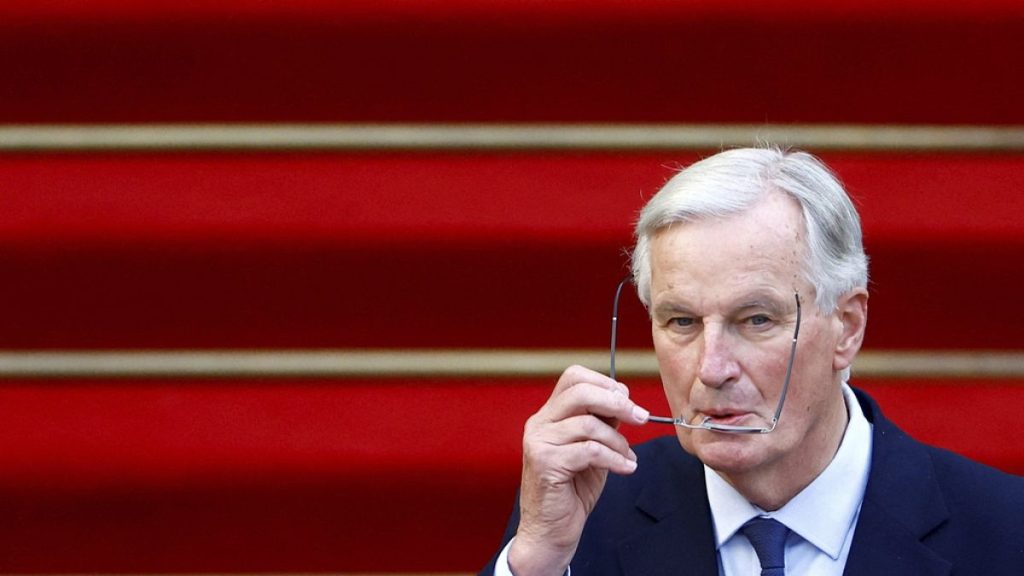French Prime Minister Michel Barnier’s new cabinet, consisting of 39 ministers, is focused on addressing the country’s debt and controlling migration levels. The government, composed of conservatives and centrists, met for the first time to discuss key issues such as the budget and migrant concerns. Barnier emphasized the need for a national effort to address France’s debt issues, which led to the European Commission placing the country under an excessive deficit procedure earlier in the year. He also suggested raising taxes on the wealthiest individuals to contribute to this effort.
In his first televised interview since the ministers’ appointment, Barnier highlighted the importance of controlling and limiting immigration, stating that the current levels of migration have become unsustainable. He referenced the actions taken by neighbouring countries like Germany, which instituted temporary controls at their land borders. Barnier’s initial major political challenge will come on 1 October when he is expected to deliver his general policy speech to the National Assembly. Despite the New Popular Front winning the most seats in the recent parliamentary elections, they were unable to form a majority government and refused to make concessions to join a more left-leaning alliance.
Barnier, a seasoned political veteran known for his role as the EU’s Brexit negotiator, emphasized the need for compromise in the new government. He highlighted his ability to unite the 27 countries of the EU during Brexit negotiations as an example of his diplomatic skills. Despite coming from different political backgrounds, Barnier and President Macron aim to work together for the benefit of the country, avoiding any controversies that may arise. The coalition between Barnier’s conservatives and Macron’s centrists is seen as a strategic move to gain broader support in the National Assembly.
The European Commission’s recommendation for an excessive deficit procedure for France earlier in the year has pushed the government to prioritize debt reduction in their agenda. Barnier mentioned that the upcoming 2025 budget bill will be a key challenge for the government, necessitating a national effort to address the country’s financial situation. While Barnier assured that he does not intend to burden all French citizens with increased taxes, he proposed implementing taxes for the wealthiest individuals to contribute to the national effort. The government’s focus on fiscal responsibility is key to addressing the economic challenges facing France.
Immigration control is another crucial issue for the new government, with Barnier expressing concerns about the current migration levels in the country. He acknowledged that the situation has become unsustainable and emphasized the need to limit and regulate immigration. As neighbouring countries like Germany adopt measures to control their borders, France is also exploring options to manage the influx of migrants. Barnier’s commitment to addressing migration issues aligns with his broader vision of strengthening national policies to address challenges facing the country. The upcoming policy speech to the National Assembly will offer insights into the government’s comprehensive approach to managing debt and migration effectively.













